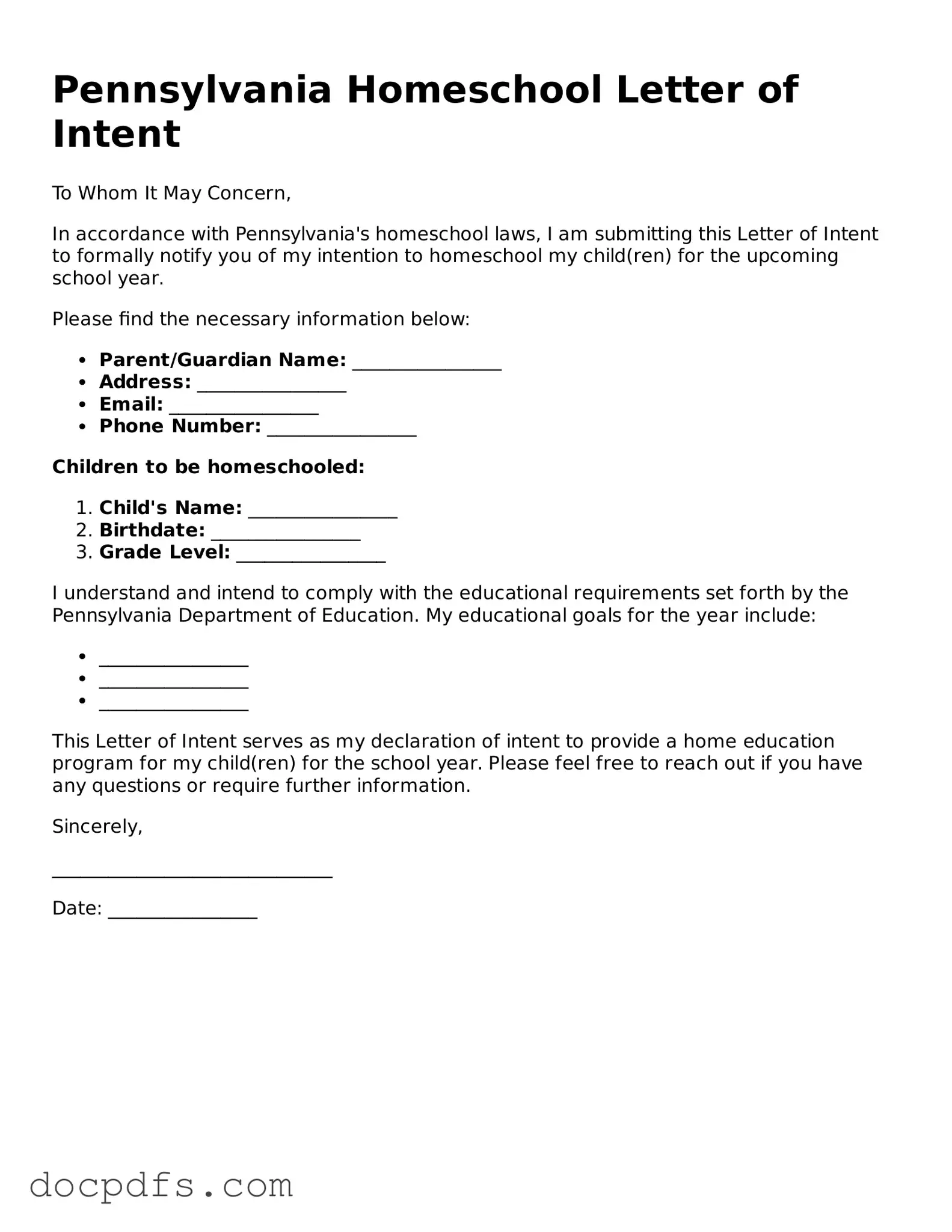Free Pennsylvania Homeschool Letter of Intent Form
The Pennsylvania Homeschool Letter of Intent is a crucial document that parents must submit to officially notify their school district of their intention to homeschool their child. This form outlines the educational plan and ensures compliance with state regulations. Understanding how to properly fill out and submit this form can help streamline the homeschooling process.
Open Homeschool Letter of Intent Editor Now

Free Pennsylvania Homeschool Letter of Intent Form
Open Homeschool Letter of Intent Editor Now

Open Homeschool Letter of Intent Editor Now
or
⇓ Homeschool Letter of Intent
Finish this form the fast way
Complete Homeschool Letter of Intent online with a smooth editing experience.